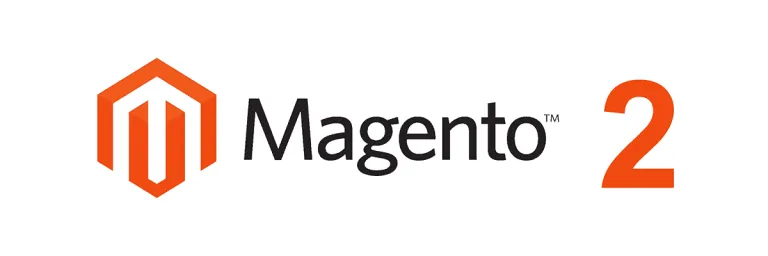Drupal Commerce Vs Magento 2: The Battle of E-Commerce Platforms

Your business’s success is heavily reliant on selecting the appropriate platform for creating an online store. There are tons of solutions out in the market, and finding the right platform can seem overwhelming. These two names appear as one of the top solutions for building your E-commerce business: Drupal Commerce and Magento 2 (Adobe Commerce). Both platforms have their strengths and weaknesses, and we’ll be exploring them in detail.
Don’t worry if you’re having difficulty deciding on a platform for your company. This article’s got you covered! It explains everything you need to know about E-commerce platforms and helps you make the best decision.
What is Drupal Commerce?

Drupal Commerce is an open-source E-commerce platform that’s integrated with the Drupal CMS (Content management system). According to BuiltWith, Drupal Commerce has a 0.12% market share among the top 100k E-commerce sites.
It’s built on Drupal’s core architecture and deeply utilizes powerful frameworks and API systems to help you build a flexible and customized website. At the core, Drupal commerce is a set of modules that extends Drupal’s functionality to include features, such as product management, shipping integrations, shopping cart functionality, payment, and order management. This is a great option for businesses that relies on complex content management functionalities and wants to easily integrate with third-party systems.
What is Magento 2?

Magento 2 or Adobe Commerce is also an open-source platform that can help your business to create a powerful and customizable online store. The same report of BuiltWith says that Adobe Commerce has about 1.02% market share among the top 100k E-commerce websites. It’s built on top of the Zend framework and uses modern web technologies–HTML5, CSS3, and jQuery to build a modern and responsive user interface.
There are three versions: Magneto Open-source, Magneto commerce cloud, and Magneto Commerce. If your online store needs complex requirements with advanced specifications, you may choose this platform. Building and managing a website on this platform is a big job. You’ll need to have some serious resources and technical skills at your disposal to make a website that really wows your audience.
Comparison Battle: Drupal Commerce vs Magento 2 (Adobe Commerce)
Pricing
As Drupal Commerce and Magento 2 (Adobe Commerce) are open-source platforms, it’s free to use and can be downloaded and installed on a server. But there is an additional cost involved to successfully build your online stores, such as hosting fees, payment processing fees, and the cost of any third-party extension or plugin.
Generally, Drupal commerce is a cost-effective platform because of its lower hardware requirements and shared platform plan. You must have to spend a lot on hiring a team of developers, Drupal is relatively cheaper for development ($61-$80/hour), while Adobe Commerce can range anywhere between $50-$250/hour. Finally, pricing is determined by your budget, website complexity, traffic volume, and the technical expertise of your web development team.
Features
Drupal Commerce and Adobe Commerce are widely known for their extensive feature sets. Drupal commerce provides a flexible framework for creating and managing content.
You can definitely consider this platform if you need complex content management along with e-commerce needs. Adobe Commerce is built specifically for e-commerce and it provides features, such as multiple languages and currencies, built-in SEO optimization, advanced analytics, and reporting tools.
Security:
With the rising threat of cyber crimes, data security is one of the most crucial factors you need to consider when choosing an e-commerce platform. Online stores gather the credit card details, debit card details, and other personal information of the customers. Under such circumstances, it becomes imperative for you to promise them cutting-edge cybersecurity.
When it comes to Drupal, it is unarguably considered the most secure e-commerce platform. Its dedicated team of cybersecurity specialists works persistently to ensure top-notch data protection. The platform is also equipped with password protection, two-factor authentication, user access control, database encryption, and other security features to slew any data breach endeavors.
Talking about Magento 2, there have been quantum improvements in the software’s security patches as compared to the previous versions. Stronger hashing algorithms in password management, security scans, and two-factor authentication have taken its overall security to a different level. Besides, regular security patches are released to address any impending cyber threats.
Scalability:
Every business aspires to accomplish monumental growth with time. As this aspiration gets fulfilled for you, your e-commerce website should be well-equipped to cater to the increasing traffic. The degree to which your e-commerce platform offers scalability will determine the fate of your online store. Occupied with the humdrum of their lives, customers are quite impatient. If a website crashes during peak load hours, the visitors leave within seconds. Hence, it is crucial to choose your e-commerce platform with farsightedness.
Drupal offers cutting-edge scalability options with advanced content delivery networks and other features. It can cater to millions of users at a time. Besides, there is a module available for every need that arises as your e-commerce store flourishes. All you need to do is integrate the desired module and a Drupal API with your website. All in all, Drupal can perfectly complement the proliferation of visitors to your online store.
When it comes to Magento 2, it also matches strides with Drupal in terms of scalability. You can add up to thousands of products to your catalog without any hassle. Moreover, you can also set up multiple stores without expending much effort. Once you have this e-commerce platform supporting your website, you wouldn’t face a single twinge of regret at your decision in terms of scalability.
Search Engine Optimization:
Search Engine Optimization is an ingenious way to achieve higher website ranking, create a captivating brand image, and increase organic traffic. If you aspire to stand out from the crowd of the plethora of e-commerce websites available today, impeccable SEO is a must. Being the leading e-commerce platforms, both Drupal and Magento 2 offer incredible SEO tools and modules.
First talking about Drupal, it can integrate a flawless SEO suite into your website. It makes keyword research, keyword management, keyword extraction, link management, content auto-linking, and content tagging seamless. It also extends search engine reporting and analysis features such as Google webmaster tools and Google Analytics. You can easily download all the SEO modules offered by this e-commerce platform from its website.
Coming to Magento 2, it also offers prominent SEO tools which you can integrate into your e-commerce website. Some of them include metadata for category settings, canonical tags, keyword research, keyword management, SEO XML sitemap generation, and Alt tag generation.
Content management:
A content management system (CMS) enables you to create, publish, and edit content on your e-commerce website without the hassle of writing code. Using it, you can also tailor the design and look of your online store according to the preferences of your target audience. All e-commerce platforms understand the need for a CMS today, hence, a majority of them also serve as content management systems. This is true for both Drupal and Magento 2 too.
As we already discussed, Drupal started as a content management system. Without any dilemma, it is one of the best CMS unequaled in the history of the world. It focuses on customer-centric user experiences and personalization which is the need of the hour. After all, customers are delighted only when their digital experience is centered around them. Further, Drupal also enables you to connect with your valued customers through multitudinous social media channels such as Twitter and Facebook via social media integrations. Being a multilingual platform, it also boasts its capabilities to take your e-commerce business across borders. In short, Drupal continues to remain unmatchable as an e-commerce platform with CMS capabilities.
Magento 2 offers a basic content management system. It provides you with pretty much the fundamental features of a CMS such as adding pages and including some content with the products available on your online store. Third-party extensions and CMS blocks are also available with the package. If you desire to avail other advanced features of a CMS, the custom domain of Magento 2 needs to enter. No doubt, it comes with an additional cost, but you won’t experience a speck of regret at your decision of upgrading the plan.
User-friendliness:
When talking about an e-commerce platform, user-friendliness can be a subjective term. If you are a tech-savvy person who is adept at coding, you might be able to use a coding extensive e-commerce platform effortlessly. In stark contrast, if you aren’t a coding expert or you are a newbie, you might find the platform inconvenient. Hence, user-friendliness largely depends on our skillset but if something requires a very basic skill set that anyone can possess, it can be termed to be absolutely user-friendly.
Drupal is an e-commerce platform that takes pride in its easy-to-use interface. You can use it conveniently even if you don’t know computer coding. If you are searching for simplicity of usage in your e-commerce platform, Drupal is unmatchable. You can fearlessly choose it without any dilemma.
Talking about Magento 2, it requires advanced PHP skills for the basic setup. This implies that for newbies and those who do not have any experience with coding, Magento 2 might not be the best choice. However, if you can hire a dedicated PHP developer to do the setup for you, further usage of the platform will become hassle-free.
Conclusion
Who won the comparison battle: Drupal Commerce vs Magento 2 (Adobe Commerce)? To be really honest, there’s no clear winner because each platform is targeted to a specific business type. You have to take a decision after a careful assessment of the unique needs and goals of your business. Whatever e-commerce platform you choose, having a tailored solution that fits your business like a glove is critical.
At LN Webworks, an E-commerce web development company, our expert Drupal developers are determined to take your E-commerce game to the next level. Don’t hesitate to contact us today and learn more about how we can help you build powerful E-commerce solutions using Drupal E-commerce development services.
